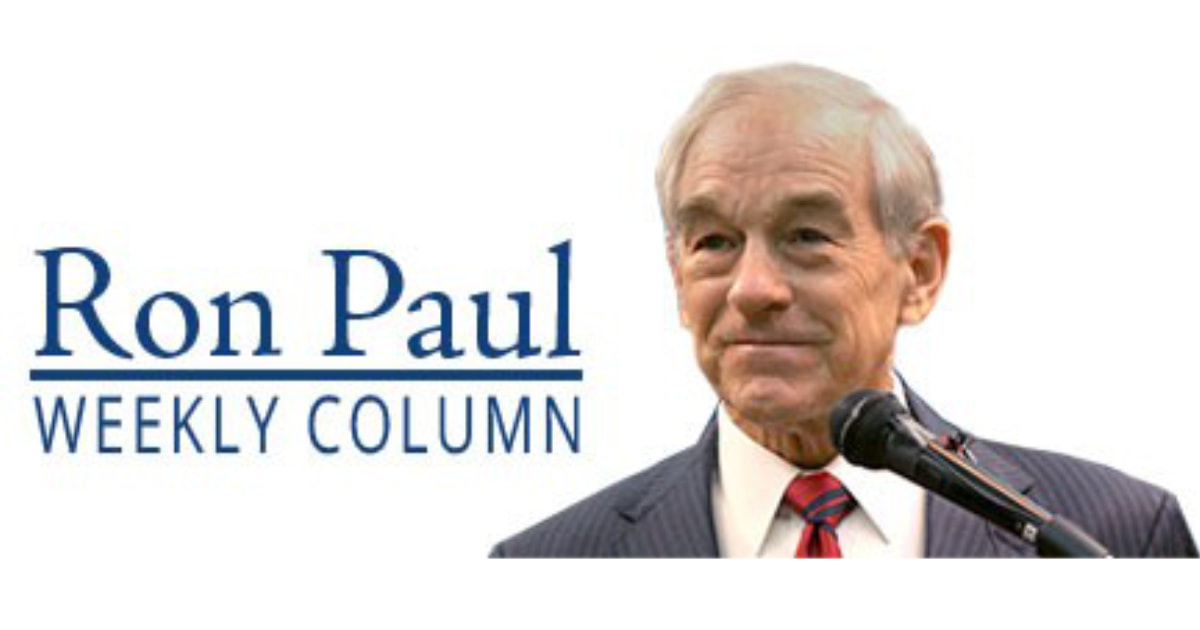|
By Ron Paul
President Joe Biden has unveiled a three-part plan to fight inflation — or at least make people think he is fighting inflation. One part of the plan involves having government agencies “fix” the supply chain problems that have led to shortages of numerous products. Of course, any attempt by the government to solve the supply chain problems (which were caused by prior government interventions such as shutting down the economy for over a year) will not just fail to solve the supply shortages but will create new problems. Deficit reduction is another part of Biden’s anti-inflation plan. However, Biden is not proposing cutting welfare or warfare spending. Instead, his deficit reduction plan consists of “tax reforms to increase revenue,” which is DC-speak for tax increases. History shows that tax increases unaccompanied by spending cuts end up increasing the deficit. The last and most important part of Biden’s inflation plan is recognizing that the Federal Reserve “has the primary responsibility to control inflation.” President Biden has pledged to “respect the Fed’s independence,” unlike former President Trump, who Biden accused of “demeaning the Fed” by subjecting the central bank to mean Tweets. It is hard to believe that someone who has been in DC as long as Joe Biden really thinks Donald Trump was the first President to try to influence the Fed’s conduct of monetary policy. Since the Fed’s creation, Presidents have used public and private pressure to “convince” the Fed to tailor monetary policy to advance their policy and political goals. When it comes to “demeaning” the Fed, Trump has nothing on Lyndon Johnson, who, frustrated over the Fed’s refusal to tailor monetary policy to finance the Great Society and Vietnam war, threw the Fed chairman against a wall. By “passing the buck” on inflation, Biden no doubt hopes to deflect blame from himself and his party before the midterm elections. Unlike Biden’s previous inflation scapegoats — greedy corporations and Vladimir Putin — the Fed actually is responsible for creating and controlling inflation. Price increases in specific sectors of the economy may be caused by a variety of factors, but economy-wide price increases are always the result of the Federal Reserve’s easy money policies. Inflation is actually the act of money-creation by the central bank. Widespread price increases are a symptom, not a cause, of inflation. Federal Reserve Chairman Jerome Powell remains committed to more rate increases this year. However, even if the Fed follows through on all its projected rate increases, rates will still be at historic lows. While there are those on the Fed board who want more and bigger rate increases, others worry that going too far too fast in increasing rates will cause a recession. Already many economic experts are saying America should be prepared for increase in unemployment caused by the Fed’s efforts to vanquish inflation. This “tradeoff” between high prices and high unemployment illustrates the insanity for our monetary policy. Treasury Secretary and former Fed Chair Janet Yellen and Chairman Powell have both admitted they were wrong to publicly dismiss inflation as “transitory.” The fact that the two most recent Fed chairs made such a huge blunder (or purposely refused to admit what was clear to many people for over a year), shows the folly of relying on a secretive central bank to manage monetary policy. Instead of “respecting the Fed’s independence,” President Biden should work with Congress to audit, then end the Fed. Comments are closed.
|
Archives
July 2024
|


 RSS Feed
RSS Feed



